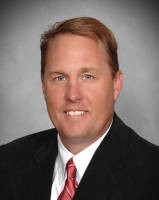As a media market, Memphis ranks 51st in the United States, according to Nielsen, behind several cities of comparable size. However, when it comes to sports-talk radio, that rating number shoots up into the 20s. Much of that is based on the current success of one FM station, 92.9 WMFS, and its roster of talent — which includes Gary Parrish, the top-rated sports host in town. But it also has something to do with the fact that, as a format, sports-talk is as deeply ingrained in the Memphis community as the teams we follow. And that story starts with George Lapides.
Like most of the prominent sports-talk radio hosts in Memphis, Lapides (who died earlier this year of the rare lung disease idiopathic pulmonary fibrosis) got his start in print journalism. As a former sports editor and columnist for the Memphis Press-Scimitar, which ceased publication in 1983, Lapides had imbedded himself in Memphis sports culture from the mid-’60s. But it wasn’t until 1971 that he launched his pioneering radio show, Sports Time, and truly found his calling. In some form or fashion, Sports Time with George Lapides ran continuously on Memphis airwaves for more than 45 years, making it the longest-running sports-talk show in history.
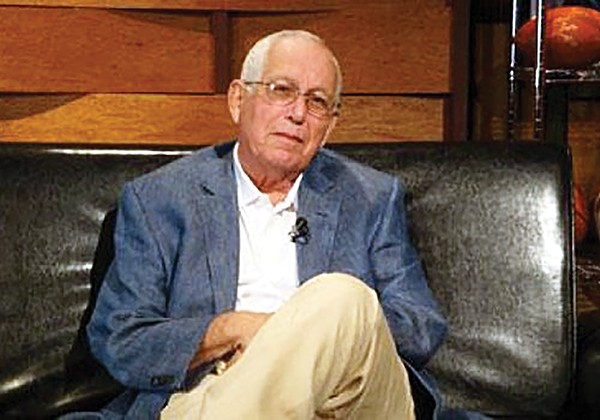
George Lapides
“George basically introduced the format to Memphis,” says Eli Savoie, the program director and midday host (with Greg Gaston) on Sports 56 AM, home to Lapides and Sports Time for the last two decades. “He was one of, if not the first, newspaper man to switch to radio; he showed it could be done. There isn’t a sports-talk host in Memphis who hasn’t crossed paths with George or been influenced by him.”
 J.D. Reager
J.D. Reager
Geoff Calkins
“You couldn’t have a lot of ego, working with George,” says Geoff Calkins, the lead sports columnist for The Commercial Appeal, Lapides’ former co-host on 560 AM, and the current host of the 9 to 11 a.m. slot on 92.9. “He made it clear he ran the show, but we had a mutual respect for each other. We both had our roots in print journalism. I thought we played off each other well. As I have often said about George, I admire that he always thought of himself as a reporter, always cared about getting the story and getting the story right. That was as true at the end of his show as it was when he first began.”
Those sentiments are echoed by another of Lapides’ longtime radio partners, and a Memphis radio legend in his own right, Dave Woloshin, who currently hosts the show in Lapides’ old time slot (7 to 10 a.m.) on 560 AM and has been the voice of the University of Memphis Tigers team for 25 years.
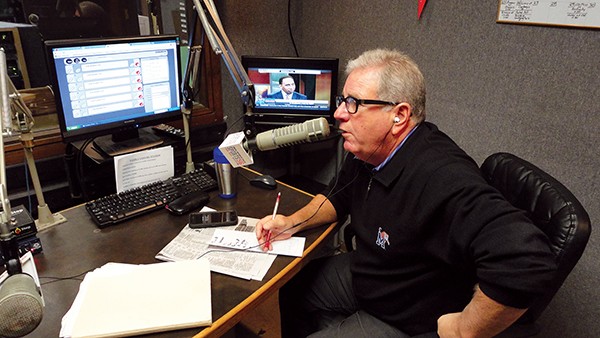 J.D. Reager
J.D. Reager
Dave Woloshin
“George’s legacy can be found at every station,” he says. “It cannot be overstated.”
What also cannot be overstated is how much 92.9 is kicking everyone else’s ass in the sports-talk ratings. The station’s Nielsen ratings are more than double those of 560 AM, and the other local sports station in town, 730 AM, doesn’t even chart. A lot of that comes from 92.9 FM’s strong FM signal (560 AM simulcasts on 87.7 FM, but the strength on that band is weak) and the fact that it’s the local ESPN affiliate and the flagship station of the Memphis Grizzlies.
“We suffered with them through the lean years,” says Savoie, whose station was the Grizzlies home when the team wasn’t winning. “It’s definitely an advantage for them.”
The Unconventional Approach
But there is another element that has contributed to 92.9’s sports-talk success: its hosts’ unconventional approach to the genre. For better or worse, the hosts on Sports 56 tend to stick more closely to a traditional format — news and stories related to sports — and rarely venture into social issues or pop culture. At 92.9 FM, those rules have gone out the window. On any given afternoon, you are as likely to hear Parrish discuss race politics or local restaurants or celebrity boobs as you are sports, and that has become part of his appeal.
“I think the biggest thing is that I’m a natural storyteller, and I’ve always been one,” says Parrish, whose show is on every weekday from 4 to 6 p.m. “Sitting at a cafeteria table as a kid, standing at a bar with friends as an adult, I could always tell a story. So that’s part of it, for sure. And everything is rooted in that. I also construct the show in a way that appeals to a larger audience than most sports shows. For instance, sometimes people will tweet me and tell me to ‘stick to sports.’ What they don’t realize is that I’m purposely not sticking to sports, and for two reasons: One, because I have interests outside of sports, and I enjoy discussing them. And, two, because I’m going to have sports fans listening no matter what. I’m on a sports station. So I’ve got sports fans no matter what. But, because I venture outside of sports so often, I also have non-sports fans listening.”
According to Brad Carson, the director of branding and sports programming at 92.9 FM and the on-air producer of The Gary Parrish Show, that approach isn’t just limited to Parrish. It’s practically become a station-wide mantra.
 J.D. Reager
J.D. Reager
Brad Carson
“Along with being a brilliant storyteller, host, reporter, and entertainer, Gary gave us the opportunity to learn how to build our radio station and develop something fun, different, and compelling,” he says. “We encourage all of our hosts to be themselves.”
This stylistic difference isn’t lost on the competition, either. “The moniker of the station [560 AM] is ‘Real Sports,'” says Woloshin. “I can only do the show the way I know how. I’m all for talking about myself and my life, but sports is still the most important thing.”
“Free Verno”
If there’s a chink in 92.9 FM’s armor, it is the recent departure of one of the station’s most popular and outspoken hosts, Chris Vernon.
Vernon, who, like most local sports-talk radio personalities, got his start on 560 AM before leaving for greener pastures (first 730 AM, and eventually 92.9 FM), parted ways with the station in September, when an agreement on a contract extension could not be reached. And while the higher-ups at 92.9 FM have certainly tried to keep the negotiations and subsequent ill-will under wraps, Vernon and his rabid fanbase would not be denied. Before long, the hashtag “#FreeVerno” was trending on social media and personal shots were fired — mostly between Vernon and Dan Barron, general manager of Entercom, the radio conglomerate that operates 92.9 FM. The rift became irreparable.
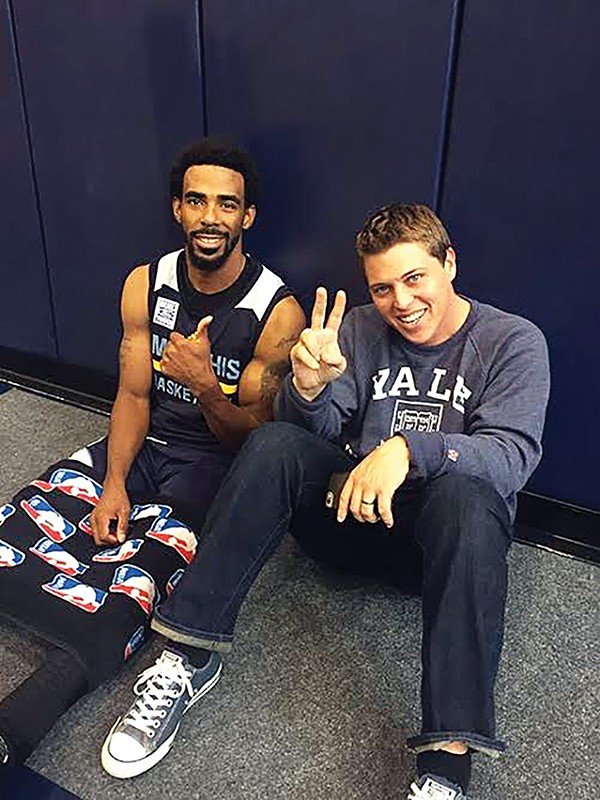 J.D. Reager
J.D. Reager
Chris Vernon
“I knew I would eventually have other opportunities, and I didn’t like the fighting,” says Vernon. “After the way everything went down, I just thought [92.9 FM] wasn’t the place for me anymore. Whether I’ve been on AM or FM, big station or small, my fans have always been extremely loyal to me and my advertisers, so I knew I’d be fine wherever I ended up.”
For their part, the higher-ups at 92.9 FM are playing it, if not tight-lipped, at least fairly cool, when it comes to Vernon.
“There’s no animosity from our point of view,” says Carson. “He is a super talent, and we had a great working relationship throughout his time with us. Chris chose to move on and do something different. We respect that. He has different professional goals that will advance his career. I think often times in these scenarios some folks like to find a villain. There’s no villain here.”
Whether or not there’s a villain, one thing is clear: There is bad blood. And Parrish, who is both Vernon’s longtime friend (and, briefly, former co-host when the two were on 730 AM) and an inside observer of the situation, sees it clearly.
“I hated that it got so ugly, publicly, because on one side, I had a close friend, and on the other side was one of my employers,” he says. “I was very much in the middle of everything. It wasn’t fun. But, ultimately, Vernon did what he thought was best for his career, and then the station moved on as best it could. In the end, I think all parties will be fine. But those were a wild few weeks, absolutely.”
For those who are still wondering, Vernon has landed on his feet. He hosts a podcast version of The Chris Vernon Show as a part of Grind City Media, the Grizzlies’ new in-house media outlet, and produces viral videos to go along with it. He’s also doing a regular NBA podcast for nationally known sports reporter/author/TV-host Bill Simmons’ latest, post-ESPN media iteration, The Ringer, and doing Grizzlies pre- and post-game work.
“He [Simmons] and I met when the Grizzlies were in the NBA Western Conference finals in 2013,” says Vernon. “He was covering the games for ABC. We stayed in contact, and I had him on my show on 92.9 FM a few times. Everyone over there is cool.”
As for his Grind City Media podcast, it has been somewhat sporadic in its early stages, with shows varying in length and regularity. But the long-term plan is for the Grizzlies to build Vernon a studio — similar to what DirectTV did for former ESPN radio host and SportsCenter anchor Dan Patrick when it hired him away from the mothership — and have his show available as both a live internet TV show as well as an on-demand podcast.
“We found out the same way everybody else did that Vernon’s relationship with 92.9 FM didn’t work out,” says Jason Wexler, president of business operations for the Grizzlies and the head of Grind City Media. “Once he was available, it seemed logical to have a conversation with him and see what we could do together. We liked everything he brings to table — a dedicated audience, marketplace credibility, and a unique voice.”
“I don’t need to be on terrestrial radio anymore,” says Vernon. “Things are changing in radio. People are not on my time, they are on their own time. They listen to podcasts on-demand, when they want to. Traditional radio is dying.”
Jason and John
If traditional radio is dying, that’s news to 92.9 FM. To fill Vernon’s 11 to 2 p.m. slot, the station has turned to two fresh voices — both former Commercial Appeal sports reporters: John Martin and Jason Smith. The duo launched their show in October, and despite some rookie jitters early on, has started to establish its own voice on the airwaves.
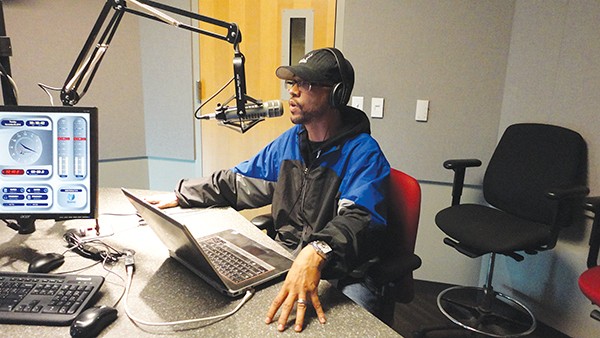 J.D. Reager
J.D. Reager
Jason Smith
“I’ve been incredibly impressed,” says Calkins, who originally brought Martin in to the 92.9 FM fold as his on-air producer and has been a steadfast supporter of Smith over the years. “Let’s be honest, it was past time for the station to add an African-American host [Smith], and Jason is going to be a star. He’s connected, he’s thoughtful, and he’s fabulous on TV and radio. Although I had great regard for Jason as a colleague at The Commercial Appeal, I often wondered why he wasn’t doing TV or radio. He’s a natural. He’s both passionate and genuine. That’s a combination that will take him far.
“As for John, I wouldn’t have insisted on him as my producer if I didn’t think he had what it takes. In many ways, John is the engine of that show. So I knew the two of them would be good together, but I didn’t think they’d be this good, this fast.”
 J.D. Reager
J.D. Reager
John Martin
Both Martin and Smith have acknowledged the immense challenge of filling Vernon’s shoes in a market where he was clearly beloved.
“I’ll tell you this: I didn’t want that job at first,” says Martin. “Are you kidding me? Did you see the response on social media? I didn’t want to follow Chris. I wanted my own show, but not if it meant having to step into that firestorm.”
“There is no replacing Verno,” agrees Smith. “All John and I can do is grind and try to put together the absolute best show we can each day.”
One thing that has helped Martin and Smith through their first few months together on the air is the steadying presence of Jon Roser, Vernon’s former producer/sidekick for 10 years. In fact, one could easily argue that breaking up the team of Vernon and Roser, who were the Johnny Carson and Ed McMahon of Memphis radio, was the biggest drawback of the “#FreeVerno” fallout. However, one host’s loss has turned into Martin and Smith’s gain.
“Jon Roser has been very helpful for Jason and John and has made great suggestions,” says Carson. “It helps that they are friends as well. Jon has encouraged Jason and John to grow the midday show.”
A Good Understanding
So for now, with Vernon gone and Roser working on a new show, Parrish and Carson have become 92.9 FM’s flagship duo. Their chemistry — probably best described as “mock-adversarial,” with the more liberal, free-wheeling Parrish lightly (and, at times, not-so-lightly) picking on the more straight-laced Carson for a litany of differences in opinion — essentially drives the show and feels unforced. But it wasn’t always this easy for them.
“Brad and I have a really good understanding of each other now, and he knows how to be my producer,” says Parrish. “Did it take us a little while to develop that? Yeah, I’m sure it did. But we’re super comfortable together now. He’s very good at producing my show and being a character on my show.”
And for his part, Carson seems completely game to play Parrish’s straight man and occasional whipping boy. At least, as long as the ratings stay high.
“I don’t think Gary is tough on me at all,” he says. “The perceived differences and commonality between us, almost as if we were a married couple, are fascinating to people, I think. It was something totally different in Memphis.”
“I can’t tell you how many people have told me they don’t really care about sports but listen to the show anyway,” says Parrish. “Which is something I love to hear, because it suggests what I’m doing is working the way I intend it to work.”
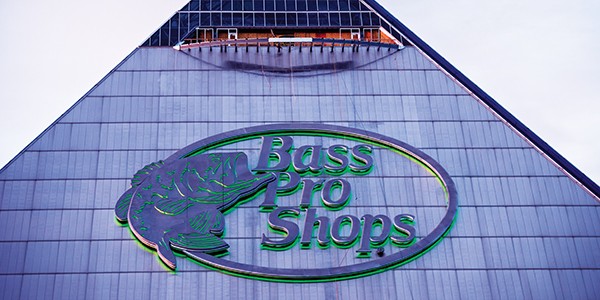
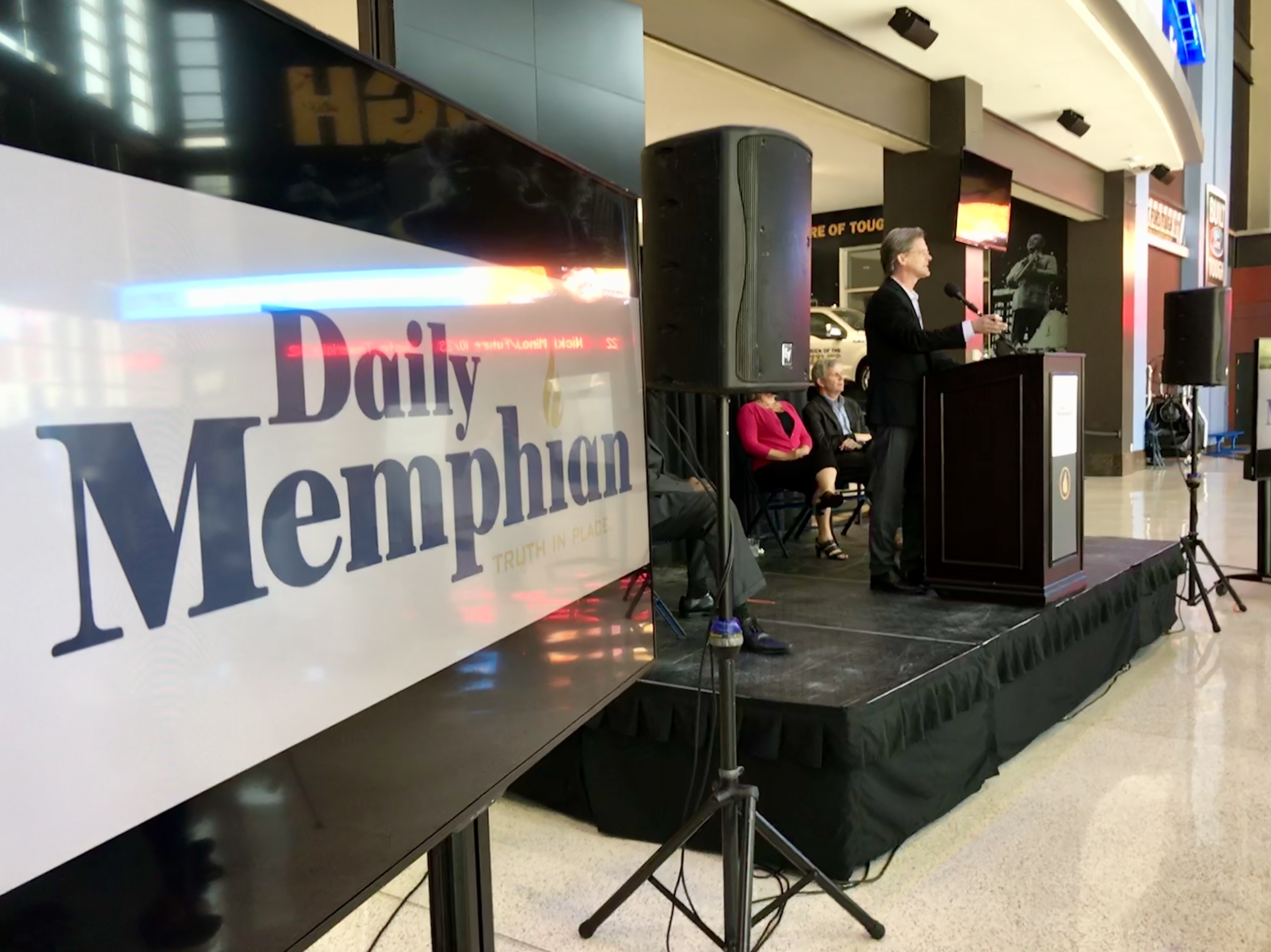 Toby Sells
Toby Sells 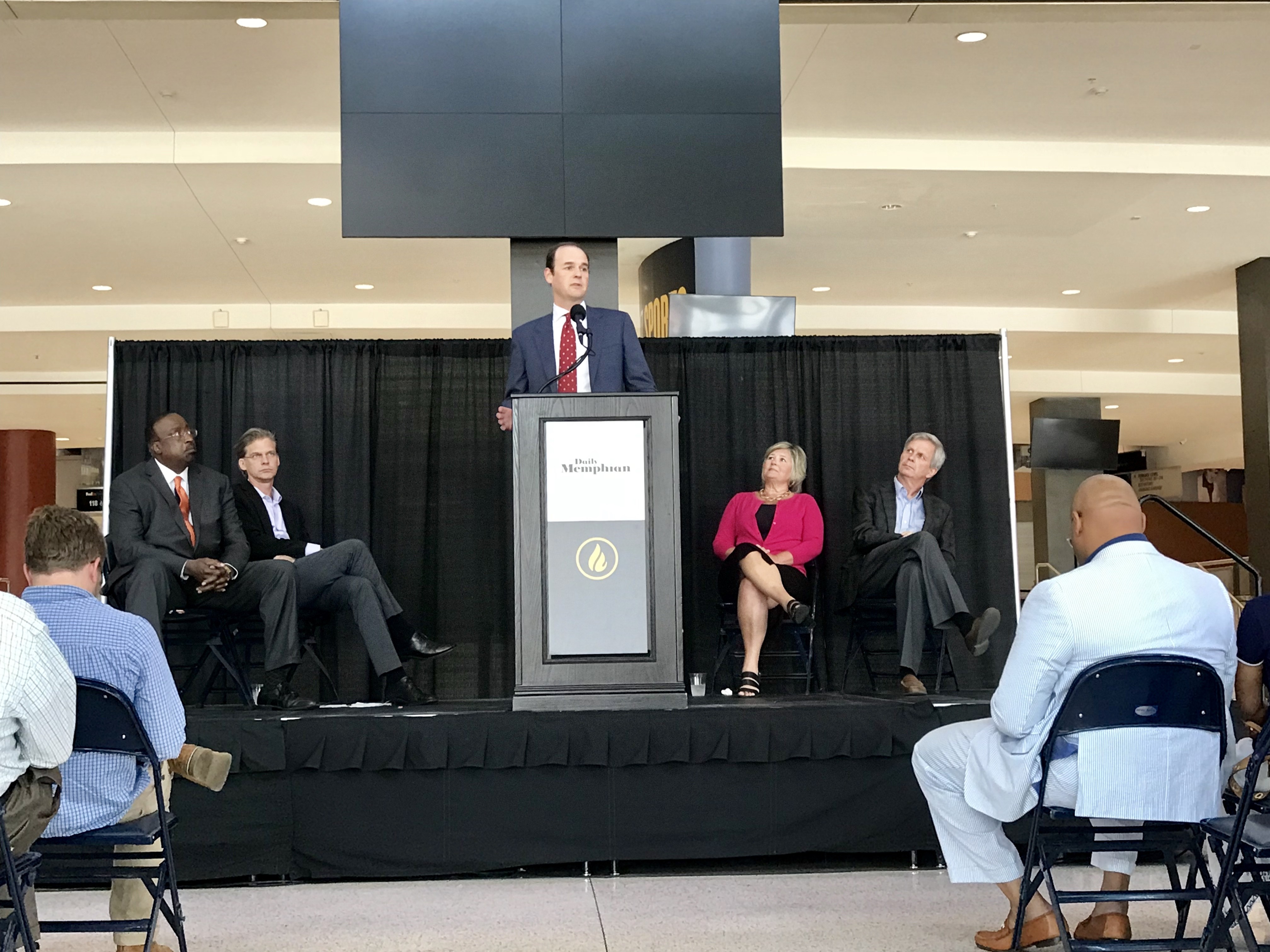 Toby Sells
Toby Sells  G. Crescoli, Unsplash
G. Crescoli, Unsplash 
 J.D. Reager
J.D. Reager  J.D. Reager
J.D. Reager  J.D. Reager
J.D. Reager  J.D. Reager
J.D. Reager  J.D. Reager
J.D. Reager  J.D. Reager
J.D. Reager  Justin Fox Burks
Justin Fox Burks  Justin Fox Burks
Justin Fox Burks 